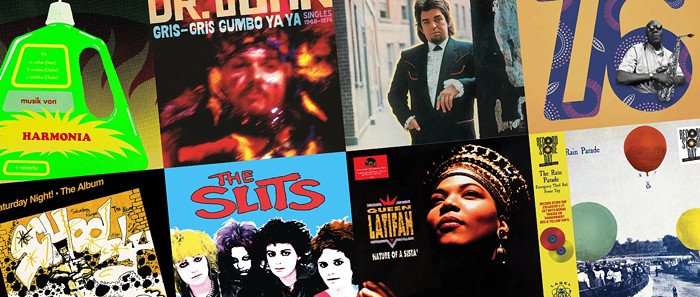Like a good insomniac, Raymond Raposa has a psychic anchor of 4:00 a.m. While most people are either curled fetal under blankets or hauling recycling bins to the curb, Raposa is awake and busy, crafting folk songs that bear the weary creak of an old cabin floor.
"I'm up sometimes around then," says Raposa. "'Cause I'm restless and I've got a lot of things to ponder and review that I don't always have the time and spirit to take care of in the quick drive of daytime living."
Such distraction-less hours naturally lend themselves to moments of pensive intimacy, a condition affecting each strum and pause of his music. To date, Raposa's after-hours creativity has been channeled into two albums under the moniker Castanets: 2004's Cathedral and this year's First Light's Freeze, both of which are fluid song cycles on subjects such as faith, friendship, war, splintering seas, and hungry ghosts. Simple folk numbers strung together by brief psychedelic interludes, Castanets records are sort of a missing link between the No-Neck Blues Band, Six Organs of Admittance, and Clarence Ashley. Musically, the songs teeter vulnerably on a point of collapse but are balanced (perhaps Zen-centered) by Raposa's chilly and assured vocals. Though his voice does serve as the only steady stream on the album, it's a delivery wrought with fatalism, just like his words.
Produced by Rafter Roberts (of San Diego husband/wife art-pop combo Bunky), First Light's Freeze adds elements to the mix the first recording did not, namely electronic clicks and a couple knee-bouncing pop numbers. Worry not, though, Raposa's world is still murky and apocalyptic enough to include lyrics like "The war is on/and all our friends are dying" and "Let's go outside, dear/in the murderous night" in the same song ("Into the Night"). On the peppier "A Song Is Not the Song of the World," Raposa mourns, "I am not walking with a wife/she won't be running with the dogs," and his bending of the word "dogs" (said: "dowgs") belies his San Diego raising. Instead it suggests he crawled from the same West Virginia mineshaft as literary enigma Breece D'J Pancake. However, the darkness his music embodies shares something with fellow San Diegans Black Heart Procession (whose own Pall Jenkins appeared on Cathedral). Listen no further than the instrumental passages "Evidence (A Mask of Horizon, Distortion of Form)" and "Reflecting in the Angles," for evidence of their minor-key kinship.
While an overall eeriness dampens First Light's Freeze, songs express a certain intimacy, like Raposa and his cast are huddled around a woodfire with their backs to the weather. This particular dynamic is curious, given that the records are clustered with people, yet Raposa assumes a hermetic disposition in his delivery. Regardless of how solitary he sounds, there is a decidedly communal vibe on both record and stage with Castanets, one that is more Neil Young's ranch than Devendra Banhart's neohippy lovefest. Raposa insists friends are necessary for his music to thrive.
"Since the very first show we played it's been a communal thing," he says. "Even if it was just calling in favors with a friend sitting in for a show because somebody didn't show up. It's very important for me to not have things fixed. I don't have much interest in being a typical indie-rock band. I don't like the idea of it being the same four people and they go on tour and play the same songs and it sounds great night after night."
Such a revolving-door policy on back-up musicians has opened up Raposa to collaborations with everyone from his Asthmatic Kitty labelmates Sufjan Stevens and Liz Janes to Los Angeles free-jazz collective Create(!). He says the songs are easy to show to others and also allow room for interpretation, a situation that has the potential to slip into pandemonium. Castanets live can involve very little preshow rehearsal and can feature, among other surprises, lengthy horn improvs that are nothing short of exciting. Such a laissez-faire approach to band leadership has everything to do with Miles Davis and Ornette Coleman, though Raposa maintains he's unaware of any direct influence from the jazz giants. It's just a painfully simple rationale that keeps the performances fresh: "I know what the record sounds like," he says. "I don't need to hear it again."
editor@thestranger.com

















